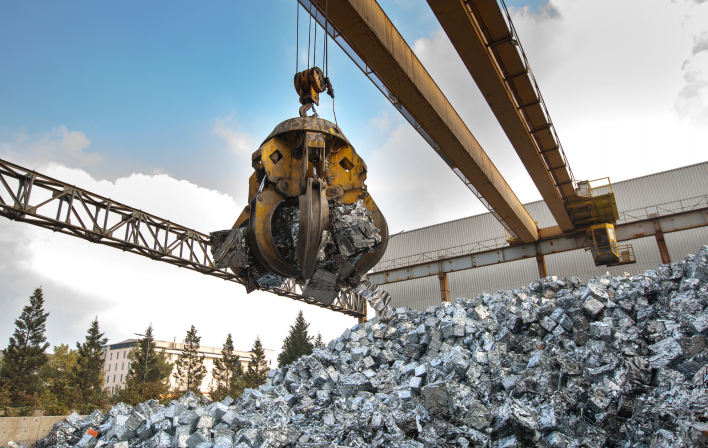Artificial Intelligence: The Future of Executive Search?
AI in hiring is either going to revolutionise the industry or make Executive Search Consultants obsolete, depending of course on who you ask. The Executive Search industry is facing the same questions as many others as we witness the rise of accessible AI technology. Will my job change? Should I be using AI? What can AI do for me?
As with most things, the true future for AI is likely to be something of a middle ground – it will neither completely revolutionise the industry, nor destroy it. Right now, it is something like a curiosity for many of us, but what impacts can we foresee for AI in hiring for the next few years?
Here I will outline some of the benefits of utilising AI for Executive recuitment campaigns, along with highlighting some of the potential pitfalls of this still-new technology.
AI in Executive Search: Speeding up processes and improving reach
AI is particularly effective at handling high-volume, low-value tasks, which means that by utilising AI to reduce admin tasks, Executive Search consultants can spend more time doing what they love; bringing value to their clients.
“While AI brings efficiency to certain aspects of recruiting, human recruiters remain essential for building personal connections, understanding nuanced candidate qualities and navigating interpersonal dynamics. Ultimately, an AI recruiter will only supercharge human recruiters’ abilities to do their jobs and fill roles more effectively,” Nancy Xu, CEO and Founder of Moonhub states.
Reducing the administrative burden
For Executive Search projects, upfront research can be one of the most time-consuming aspects of the process. Utilising AI technology to streamline this process can help to cut down on the time taken to compile a viable list of candidates to headhunt.
Examples include using generative AI to compile lists of target companies, advanced AI-enabled searches on databases, and using AI to find all the job titles which might be relevant for a specific skillset.
The Executive Search process also means a lot of time can be wasted on paperwork and scheduling. AI tools can handle many of these tasks, freeing up headhunters to talk to candidates and clients.
The more time a headhunter can spend understanding the client’s needs, the more accurate and fruitful their search efforts will be.
Data-Driven Decisions
One of the key differentiators between Executive Search and traditional recruitment is the ongoing relationship and consultative approach with clients. Adding value via data-driven insights means that AI-assisted Executive Search Consultants can help senior leaders make better decisions and support their hiring strategies.
The use of AI in the recruitment process can support headhunters to assess resumes, qualifications, and various other data points with increased efficiency. This not only helps them identify potential matches more quickly, but also adds an extra layer of due diligence that the matches are of high quality, due to sophisticated algorithms that assess compatibility based on numerous factors.
By leveraging AI’s advanced analytics capabilities, headhunters can provide their clients with data-driven insights that contribute to making better, more informed hiring decisions.
Reducing Bias
AI tools can assist in removing unconscious bias from the recruitment process, promoting diversity and inclusivity by evaluating candidates strictly based on merit and fit for the role. This data, coupled with the experience and knowledge of the headhunter, can be used to make objective choices regarding a candidate’s suitability for a particular role.
AI tools can also be utilised to scan job adverts and role descriptions to highlight any inadvertently discriminatory or biased language. For example, AI tools such as Textio can detect and eliminate biased language in job posts, job descriptions, emails, employer branding content, and more.
AI in Hiring: Real World Impacts
There are many legitimate concerns relating to the use of AI in the Executive Search process. Bias can be baked in to algorithms and help to perpetuate long-running inequalities in certain industries. Accuracy of the data which is produced by AI can be questionable, and issues such as hallucinations continue to plague even the most advanced AI technology.
I’d like to explore a couple of the problems I foresee in the widespread adoption of AI in the Executive Search process in particular.
Losing the human touch
Recently, HMRC hit the headlines for having hired some customer support staff using an AI selection process which meant the candidates never spoke to a human throughout the entire exercise.
The candidate feedback on the process (as reported in the Telegraph and The Times) seems to have been generally negative. “You’d expect the job interview to be with a human, but they were all pre-recorded questions. It was so daft and the questions themselves were waffle” said one candidate quoted in the report.
This example highlights for me one of the key traps which employers must avoid when using AI to support their search processes. AI should be supporting the human recruiters to do their jobs better, not replacing the human interactions which are at the heart of the recruitment industry.
Offline candidates
I often speak to senior leaders who are struggling to fill niche roles because they’re relying purely on LinkedIn or adverts on job boards to attract candidates. But what if these candidates aren’t online at all?
It might seem improbable for people who spend a lot of their waking hours on LinkedIn, but less than 50% of the adult UK population has a LinkedIn account, and the average user spends just 17 minutes a month on the platform.
So, the risk of an over-reliance on technology for Executive Seach is a very real one.
AI in a Supporting Role
It’s clear to me that AI could end up being heavily leveraged by high-volume, contingent, recruitment agencies, but the impact in the Executive Search sector will be more nuanced.
Executive Search Consultants will use AI to enhance their existing search techniques, but the expertise and intuition of a good headhunter are unlikely to be replaceable by AI anytime soon.
My advice to clients looking to utilise AI in their hiring processes would be to proceed with caution. Make sure that you understand the mechanics and the use cases for any new technology that you’re implementing. And if you’re unsure about the process, bring in the experts to support you in your decision making.




